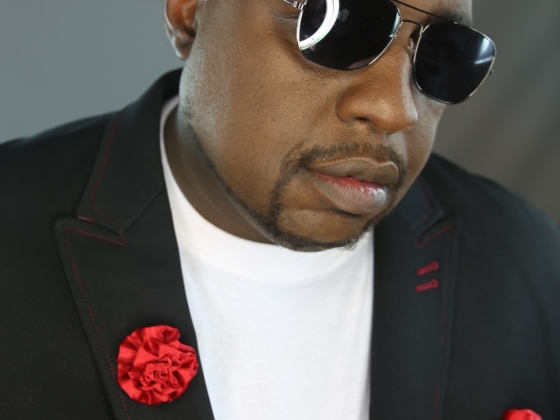Artist Remixed is back to bring you milky manipulations of your favorite singles. With the increase in bedroom producers, there has been an even bigger increase in remixes. Artists are now making entire EPs and LPs devoted purely to remixes, something unheard of just a decade ago. One search on Soundcloud for an original piece of work leaves you strolling through pages of unfinished productions and poorly structured remixes.
Yet, out of all the mashups, edits, screw-ups, and improvements, there is still gold to be found. Artist Remixed is your guide to the cream. Why search through pages and pages when EARMILK can sift through the dross for you? This weekly feature will showcase old and new artists of all genres, yet never an original piece. Artist Remixed was created to show you bedroom producers of all genres to feed your hunger. This week's Artist Remixed features Kendrick Lamar. Enjoy.
CHILLOUT REMIXES
Lying on the beach, driving through the streets, still wishing it was July, these treats are just what you need to give you another rush of that summer mindset. Overture's remix takes the original intro and makes it into a relaxing track that you can't help but sit back and smoke to. With almost no Kendrick vocals, Overture still manages to make sure "The Recipe" is a delightful treat. Next, HJMS's remix works magic on "Bitch Don't Kill My Vibe", tweaking the original with a chopped and screwed style. Dreamy, it's just enough funky to make sure you don't drift into a daze.
EXPERIMENTAL REMIXES
If it's instrumental, ambient, experimental, or just a strange sounding tune, you'll most likely find it here, straight filtered for the artists trying new sounds. Star Slinger's remix follows his signature, mezmerizing style of quick-hitting drums alongside the rhythm. Leaving Kendrick's vocals intact, he still manages to take me by surprise with a silky rework of the beat. Madeaux's remix is spring-inspired and uplifting; short and sweet it takes the original and enhances it with a buoyant melody. Dflat's remix is soft and sensual, it maintains a slight groove as it keeps the vocals while completely changing the rhythm.
DREAMSCAPE REMIXES
Perfectly balanced and relaxed, these remixes should take you somewhere you're not, uplifting you above your own element and transporting you into a daze. Kill Them With Colour's remix is eerie and smooth, using the original lyrics yet adding a ghostly voice that creates a hazy dreamscape. Black Hippy's remix changes the original with a gentle beat, hard-hitting snares, and a catchy melody. Really highlighting the dreamscape segment, we have BMB SPACEKID's remix of "Swimming Pools". Between a mix of experimental and dreamwave, SPACEKID's track takes the source and slows it down, adding distorted transitions and a tune that is sure to get stuck in your head.
TRAP REMIXES
From airhorns to 808 kicks, this section is purely for tracks that will get your elbows turned up. First, we have Bird Peterson's remix, smooth and bubbly, keeping you moving as it goes hand in hand with the original tune. Second, Kayzo's remix takes a typical trap structure with airhorns and a quick-paced beat, building up with lyrics and delivering a heavy crunch. Trapback's remix of "The Recipe" is soft and dreamy, even though it hits hard with heavy kicks and a break style tweak of the beat. BeazyTymes takes "Money Trees" and leads the vocals right into a frenzy of lasers and gunshots. Striking right at the melody, BeazyTymes makes short work of the original.
DUBSTEP REMIXES
Whether it's filthy, greasy or ambient bass, this section will feature it all and expand into sub-genres depending on the artist remixed. Impulse's remix has us clenching our teeth, keeping the vocals the same, it grabs our attention and leads us right into the filth. Jamburglar and Labrat take on "Swimming Pools" and instantly hit you with a heavy beat, a glitchy 8-bit sound leading us into a aggressive change. Last is Eprom's glitchy and wobbly rework of "M.A.A.D City"; with a beat like that, I had to feature a greasy remix.
MASHUPS
Whether it's two songs or a list of hits, these tracks combine artists' signature sounds together to make a mix of noise. This week the mashups are all certified fresh. Starting off the list, we have Stylust Beats' mashup up of Kendrick Lamar and Sleepy Tom. "Backseat FreeStyle" is turned into a heavy tune with a big bass and looped vocals. Next we have Styles&Complete's mashup of a whole slur of artists and Kid Womp's remix of TNGHT and Kendrick Lamar. The mashup takes "Gooo" and layers Kendrick's lyrics over the top while chopping and rearranging the structure repeatedly. Last is Andrew Gentry's mashup of Clams Casino and Kendrick Lamar; this mashup is mesmerizing and one of my favorite mashups I've featured lately. It takes the soft beat of "I'm God" and matches it with Kendrick's voice. We know Clams Casino works amazingly with rap over his instrumentals, so it came as no surprise that this was going to be milk for the ears.
OVERALL FAVOURITE REMIX
To finish this amazing list of tracks, we have Baysik's bootleg of Nick Bike's remix. The original remix by Nick Bike and sounds very similar but carries slight changes. Baysik's remix adds just the little extra that gives it that special touch. Baysik layers the edited vocals on top and changes the intro/outro, which really made this track stand out to me. It instantly grabs your attention by completely changing the catchy intro Kendrick uses in "Backseat FreeStyle". With the vocals scattered throughout it gives us just enough lyrics to keep us loving the trap re-twerk.











